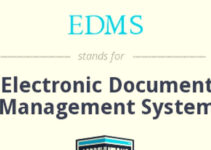Introduction
The word logistic means that how a company acquire, store, and move supplies and equipment. It plays a significant role in the smooth running of a company’s business operations. Today, we’ll discuss what is logistic management; its significance, functions, process, and various available tools.
What is Logistic Management?
Logistic management is the process of meeting the needs and wants of customers by planning, implementing, and controlling the storage and moving the goods/services from the storage facility to the final destination. It’s one of the main components of supply chain management, and it helps businesses and companies to amplify customer service and lower expenses.
Explanation
In other words, we can say logistic management is the process of managing various functions of the supply chain by planning, implementing, controlling, and managing goods/services from storage to the required destination.
People often confuse logistics with supply chain management. The focus of LM is managing the daily operations and functions of the company relevant to the final product. However, the objective of LM is to allocate a certain amount of resources at the right time. It makes sure of setting the location in a proper condition and delivering the final product to the right customers (whether internal or external).
It comprises of following activities;
- Transportation
- Fleet management
- Warehousing
- Material handling
- Fulfilling orders
- Design of logistics network
- Controlling inventory
- Planning of supply and demand
- Managing 3rd party logistic service provider
Logistic Management vs. Supply Chain
The supply chain is the vast network of working collaboratively from shipping goods, material, and raw material from supplier, producing finished goods, and then delivering it to the end customer.
On the other hand, logistic management is the process of moving and coordinating resources and dealing with some parts of the supply chain system.
Significance of Logistic Management
If a company is managing the LM effectively, then it offers a lot of advantages. A good LM system makes sure that you choose the transportation method at the economical price range and ship it efficiently, safely, and on time. Resultantly, it helps the company to satisfy customers and saves a lot of time and resources.
If the company is managing the LM poorly, then it results in the form of scrapped or return goods, dissatisfied customers, and delayed or damaged shipments. The company would have to deal with a bad relationship with customers, paying a higher cost, and increasing expenses.
If the company wants to avoid high expenses and dissatisfied customers, then it should plan activities carefully, choose the right software/tool/application, and outsource it to the right vendor in order to manage your processes and functions.
Functions of Logistic Management
Some of the main functions of logistic management are as follows;
- Customer service
- Procurement & sourcing
- Scheduling and production planning
- Packaging
- Assembling
Process of Logistic Management
LM usually comprises two main processes; outbound and inbound logistics traffic. Inbound logistics is when you move products/services from the suppliers to the company’s warehouse and storage unit, and then move it to the manufacturing/production facility for finishing. However, it comprises supplies, office equipment, component parts, tools, and raw material.
Outbound logistics is when you move the finished/final products from companies inventory/warehousing unit, and then ship them to the end customers.
For instance, the inbound logistics for a computer manufacturing company comprises molded casings, connectors, shipping cartons, cables, computer chips, and electronic parts. The outbound logistics comprise associated peripheral devices and finished computers.
On the other hand, the inbound logistics of carpenters and furniture manufacturers comprise safety glasses, paints, nails, screws, fabric, glue, and wood. Furnished and finished furniture is the outbound logistics.
Reverse Logistics
It’s the process of managing various functions of returning material and goods. It means that you take products from the final customers, and then ship them back to the source or providing company. However, reverse logistics is for various reasons like recycling, remanufacturing, repairing, and reusing the product.
Responsibility of Logistic Management
Companies hire special logisticians for the effective and efficient handling of LM. The logistician has to conduct in-depth analysis, coordinate various functions of the supply chain, and keep an eye on the life-cycle of the product from acquisition to delivery.
Tools for Logistic Management
The logistics management software allows businesses and companies to handle products/goods from the storage facility to the end delivery. It runs a wide range of applications on the company’s ERP system and integrates various functions and specializes in such application that manages only a few functions.
Some of the functions of LM are the parts of the company’s ERP system and they combine other business functions and operations like HR, procuring finance, and sales. Most importantly, the focus of LM software is the execution of supply chain, planning, management, transportation, inventory, and warehouse management.
The design of LM software is to configure various industries with a specific industry. It starts on the system of the company’s premises, other options like hybrid cloud or cloud are also available. However, some of the main logistic management software are;
- GEP
- Kinaxis
- Coupa
- PTC
- HighJump
- Manhattan Associates
- JDA Software
- Epicor
- Infor
- Microsoft
- IBM
- Oracle
- SAP
Conclusion: What is Logistic Management? Significance, Process
After an in-depth study of what is logistic management; its functions, significance, processes, and available software/tools/applications, we’ve realized that LM plays a significant role in running a company’s daily operations. Therefore, you should keep in mind the abovementioned guidelines for effective LM.

Ahsan Ali Shaw is an accomplished Business Writer, Analyst, and Public Speaker. Other than that, he’s a fun loving person.


